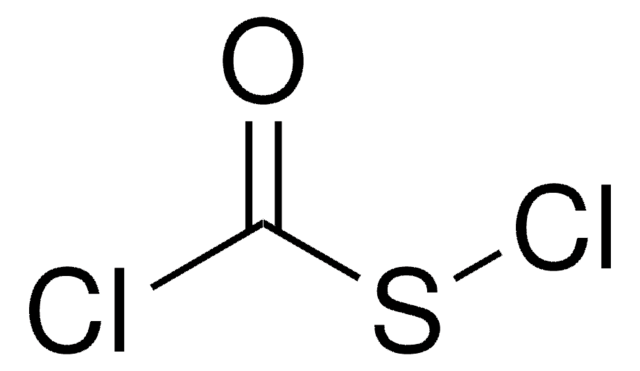359408
Methoxycarbonylsulfenyl chloride
97%
Synonym(s):
S-Chloro O-methyl thiocarbonate
About This Item
Recommended Products
assay
97%
form
liquid
refractive index
n20/D 1.481 (lit.)
bp
133-134 °C (lit.)
density
1.399 g/mL at 25 °C (lit.)
storage temp.
2-8°C
SMILES string
COC(=O)SCl
InChI
1S/C2H3ClO2S/c1-5-2(4)6-3/h1H3
InChI key
TXJXPZVVSLAQOQ-UHFFFAOYSA-N
Looking for similar products? Visit Product Comparison Guide
General description
Application
signalword
Danger
hcodes
Hazard Classifications
Eye Dam. 1 - Flam. Liq. 3 - Skin Corr. 1B
Storage Class
3 - Flammable liquids
wgk_germany
WGK 3
flash_point_f
129.2 °F - closed cup
flash_point_c
54 °C - closed cup
ppe
Faceshields, Gloves, Goggles, type ABEK (EN14387) respirator filter
Certificates of Analysis (COA)
Search for Certificates of Analysis (COA) by entering the products Lot/Batch Number. Lot and Batch Numbers can be found on a product’s label following the words ‘Lot’ or ‘Batch’.
Already Own This Product?
Find documentation for the products that you have recently purchased in the Document Library.
Our team of scientists has experience in all areas of research including Life Science, Material Science, Chemical Synthesis, Chromatography, Analytical and many others.
Contact Technical Service










